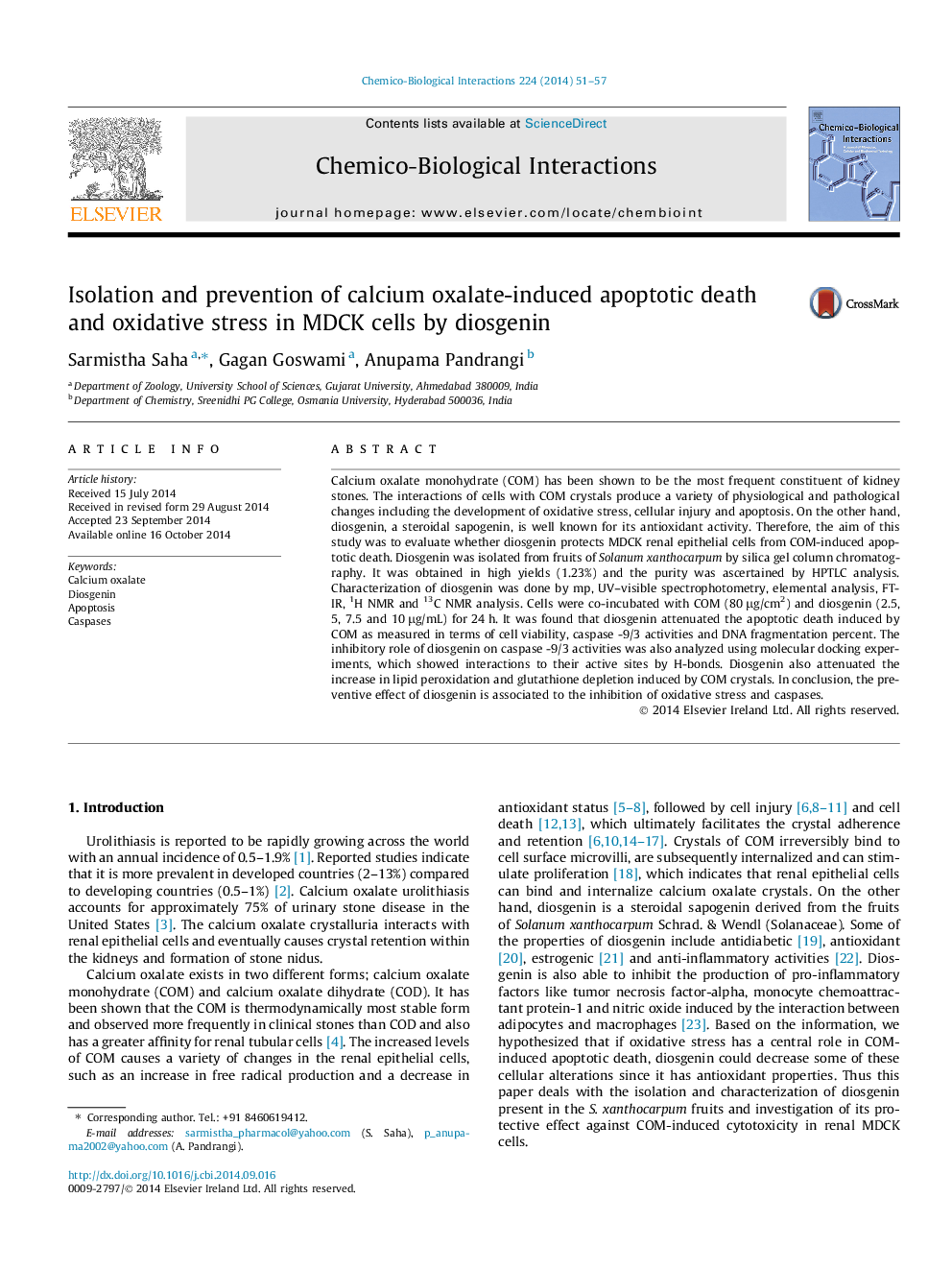| Article ID | Journal | Published Year | Pages | File Type |
|---|---|---|---|---|
| 2580389 | Chemico-Biological Interactions | 2014 | 7 Pages |
•First report on diosgenin’s anti-nephrolithiatic activity.•Role of diosgenin on down-regulation of apoptosis and DNA fragmentation.•Prevention of oxidative stress induced by calcium oxalate by diosgenin.•Inhibition of caspases by diosgenin was analyzed using in silico experiments.
Calcium oxalate monohydrate (COM) has been shown to be the most frequent constituent of kidney stones. The interactions of cells with COM crystals produce a variety of physiological and pathological changes including the development of oxidative stress, cellular injury and apoptosis. On the other hand, diosgenin, a steroidal sapogenin, is well known for its antioxidant activity. Therefore, the aim of this study was to evaluate whether diosgenin protects MDCK renal epithelial cells from COM-induced apoptotic death. Diosgenin was isolated from fruits of Solanum xanthocarpum by silica gel column chromatography. It was obtained in high yields (1.23%) and the purity was ascertained by HPTLC analysis. Characterization of diosgenin was done by mp, UV–visible spectrophotometry, elemental analysis, FT-IR, 1H NMR and 13C NMR analysis. Cells were co-incubated with COM (80 μg/cm2) and diosgenin (2.5, 5, 7.5 and 10 μg/mL) for 24 h. It was found that diosgenin attenuated the apoptotic death induced by COM as measured in terms of cell viability, caspase -9/3 activities and DNA fragmentation percent. The inhibitory role of diosgenin on caspase -9/3 activities was also analyzed using molecular docking experiments, which showed interactions to their active sites by H-bonds. Diosgenin also attenuated the increase in lipid peroxidation and glutathione depletion induced by COM crystals. In conclusion, the preventive effect of diosgenin is associated to the inhibition of oxidative stress and caspases.
